Family farmers in high-flying circus acts, “cowboys of color” bulldogging their way to become rodeo legends and members of the British Royal Air Force winning hearts in Terrell, Texas, are among the collection of engaging community stories featured in NOWHERE BUT TEXAS, a new one-hour television special premiering on Monday, June 4, 2007 at 8:00 p.m. on KERA 13.
Told through the voices of dozens of Texans, NOWHERE BUT TEXAS is a nostalgic look back at fascinating but seldom-heard stories of Texas communities, their people, and the circumstances that gave them a colorful place in the state’s rich history. The documentary, by Producer/Director Linda Stogner and Co-Producer Therese Powell, is shot in high-definition and offers a rich, film-style approach to storytelling. The original signature musical score was composed and produced by Mack Price.
“Audiences are sure to be captivated by this collection of extraordinary stories about the innovation and imagination of ordinary people,” says Rick Thompson, the documentary’s executive producer. “The accounts are at times heartfelt, occasionally witty and often nostalgic – but always emblematic of the bold Texas spirit.”
NOWHERE BUT TEXAS, filmed on location over the past year, is the latest in a long line of KERA television documentaries focused on the rich local and regional history of Texas. Documentaries in recent years have included Sweet Tornado: Margo Jones and the American Theater, JFK: Breaking the News, Roy Bedichek's Vanishing Frontier, Freedman's Cemetery Memorial: A Place of Healing, Finding Our Voice: The Dallas Gay & Lesbian Community, The U.S.-Mexican War, Remember When – A History of Dallas, Cowtown Memories – A History of Fort Worth, and LBJ.
Featured segments from the television special include:
“Gainesville Community Circus” The television special opens with the remarkable story of the acclaimed Gainesville Community Circus, an amateur, three-ring circus – complete with high-wire acts, clowns and tamed animals.
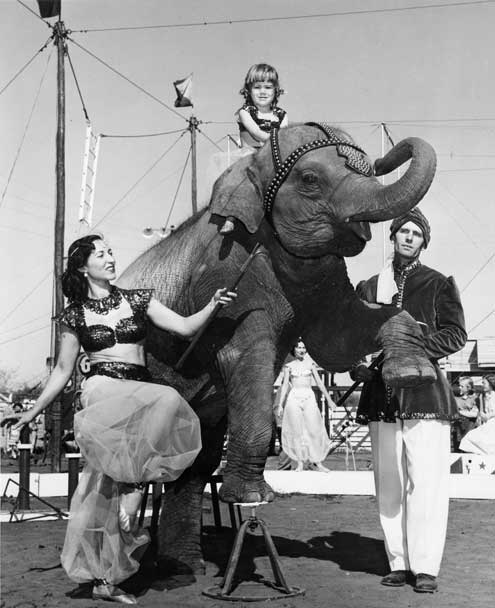
The circus was conceived as a means of paying off the debt of Gainesville’s community theater. Interviews are supplemented with vintage footage featuring amazing performances by some of the nearly 1,500 daring citizens who performed during the more than 25 years the circus operated, and put Gainesville in the national spotlight.
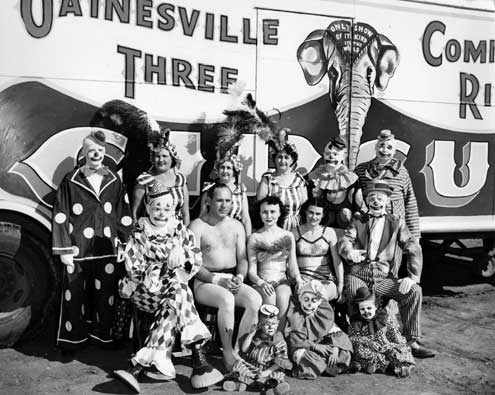
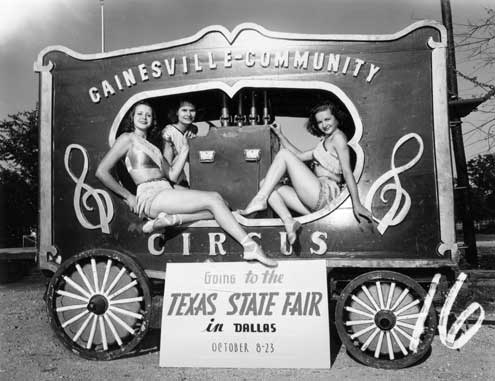
“Mama Cuellar” In the late 1800s, Adelaida Cuellar dreamed of emigrating to the United States from Mexico – and in 1891, she realized that dream by moving to Kaufman, Texas. Before long, the independent-minded entrepreneur discovered she could sell tamales and other dishes based on family recipes at the Kaufman County Fair and make more money in one weekend than her husband could earn during an entire year. “Mama” Cuellar’s success would eventually lead to establishment of the first El Chico restaurant in Dallas in the 1940s. At the height of its success, El Chico employed 4,000 people and served meals to over 16 million people a year, making it one of the largest Hispanic-founded businesses in North Texas during the 20th century.
“Lucky Streak” During the Depression era, parts of Tarrant County were notorious for high-stakes gambling and gangsters – and that was particularly true along a stretch of highway running through the center of Arlington. In the 1930s, celebrities, high rollers and hooligans hit the racetrack at Arlington Downs and flocked to Top O’ Hill Terrace, a nearby estate that established an underground casino. This segment features an account of the highly successful casino and the crusade of a zealous local minister that put an end to this North Texas gambling operation.
“Soul Circuit” Cowboys and rodeos have been synonymous with Texas, but few know that in the early days of the Lone Star State, nearly a third of the first cowboys were cowboys of color.
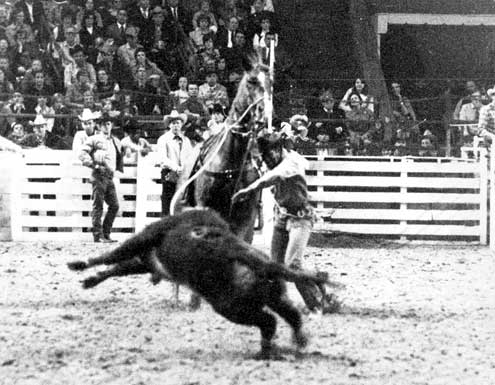
This segment features the stories of those cowboys – including rodeo legend Bill Pickett – who put black cowboys in the history books by introducing the sport of bulldogging to the rodeo circuit. The segment includes interviews with a Lancaster rodeo family that is helping bust myths about the West and encouraging young African Americans, Hispanics and Native Americans to reclaim a part of their past.
“Texas Welcome” When members of the British Royal Air Force came to Terrell, Texas, for flight training during World War II, they turned more than a few heads.
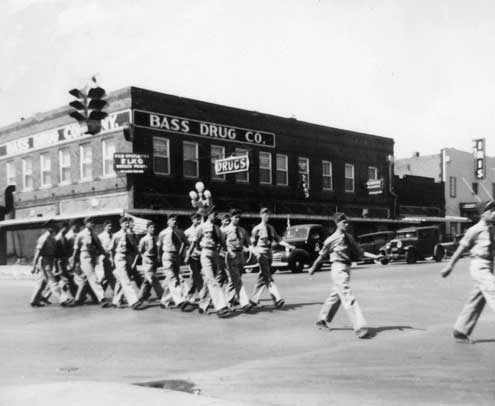
“Texas Welcome” tells the story of a decades-long love affair between the East Texas community and the cadets – and how these young "foreigners" captured the hearts of the community, forging life-long friendships in the process. More than a third of the British Flying Training School's cadets ultimately died in battle. The 20 cadets killed while training in Texas are commemorated annually in Terrell with a community memorial service in their honor. While hundreds never returned, those who did still consider Terrell their second home.
In addition to the hour-long television special, the DVD version of NOWHERE BUT TEXAS features a collection of related bonus material. The DVD will be available as a Thank You gift during KERA’s June television membership campaign.
The television special was produced by Rick Thompson, executive producer, Linda Stogner, producer/director Therese Powell, co-producer and Sylvia Komatsu, executive in charge. The production team also included Bob Perrenot, art director, Tom Pribyl, graphic designer and Mary Beth Boehm, on-line editor.
About KERA
KERA, a major public broadcasting producer and a leading community-based radio and television institution, contributes to the national PBS schedule by producing programs that showcase Texas and the Southwest to the nation. Its television productions have been lauded for excellence by top industry awards, including a national George Foster Peabody Award in 2002 for KERA's co-production of The Cliburn: Playing on the Edge and a national Emmy Award in 1998 for KERA's four-part documentary series, The U.S.-Mexican War (1846-1848). In 2001, KERA received a national Emmy nomination for its first high-definition television documentary, Matisse & Picasso.